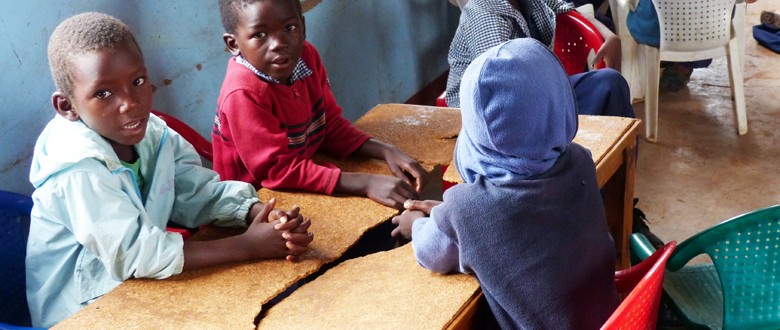
Despite gains in enrolment, learning levels in Zambia remain low. Large, heterogeneous classrooms mean that students who miss basic skills never have the chance to catch up. Programmes which tailor learning to the level of the child can help solve this problem. Zambia’s Ministry of General Education - in conjunction with the Zambia Education Sector Support Technical Assistance (ZESSTA), the UK Department for International Development (DFID), UNICEF, the Abdul Latif Jameel Poverty Action Lab (J-PAL) and VVOB - is launching a Catch Up programme, which is modelled after interventions proven to be effective in countries like India and Ghana through randomised evaluations. The programme will begin with a pilot in 2016 and 2017 and, if successful, will scale at a later stage.
From India to Zambia
Zambia’s Ministry of General Education is committed to ensuring that all Zambian children are able to attend school, stay and learn. However, recent bi-annual national assessment survey trends indicate a fall in learning outcomes. In 2014, 65% of Grade 2 pupils were unable to read a single word correctly in their own language. Grade 5 results showed a declining trend in performance, especially in Maths and English. Zambia has revised the education curriculum, which now includes teaching in a familiar language up to Grade 4, and began its implementation in 2014 as one of the measures to address this. To further ensure that learners who have fallen behind in literacy and numeracy are able to catch up to grade-appropriate levels, the Ministry will be implementing a pilot Catch Up programme targeting all learners in grades 3 to 5 in selected schools in the Southern and Eastern Provinces of Zambia. The Ministry will pilot and potentially scale the Catch Up programme based on the Teaching at the Right Level (TaRL) pedagogical approach, which aims to improve the basic literacy and numeracy skills of primary school pupils by grouping them according to ability and providing them with instruction tailored to their learning level. Pratham, a large education-focused NGO based in India, has developed and refined this pedagogical approach over the last two decades. Pratham partnered with J-PAL to evaluate the approach and has worked with them to scale it up in various states in India after the results of the evaluation demonstrated that TaRL improved pupils’ learning.
Testing two models
The Zambia Ministry of General Education plans to pilot the Catch Up programme beginning in November 2016. The programme groups pupils according to their ability levels rather than grade level or age for a targeted period of time. With teaching targeted to pupils’ abilities, appropriate materials for each ability level, specific training for teachers, and adequate supportive monitoring mechanisms in place, the evidence of the success of these programmes is strong and indicates that such programmes allow pupils to catch up and progress in their education.
The pilot Catch Up programme will ensure targeted, at-level teaching for all children in 80 selected schools over a period of one month for Eastern Province in 2016 and six months in Southern Province in 2017. Four districts will be targeted: Monze and Pemba Districts in Southern Province and Katete and Chipata Districts in Eastern Province.
The pilot will test two slightly different programme models:
- Intensive one-month: in Eastern Province, selected schools will regroup pupils in grades 3-5 by reading and numerical ability for an entire month. All learning will focus on teaching numeracy and literacy skills.
- One hour a day: in Southern Province, schools will re-group pupils by ability rather than grade for a concentrated one hour of literacy teaching during one school term, and a mix of literacy and numeracy teaching in the next school term (alternating days).
A key component of the pilot is the monitoring of the implementation and an understanding of what works and why. The Ministry is receiving strong support in material development and process evaluation aspects of the pilot. The results will help the Ministry of General Education decide whether and how to bring the programme to scale in Zambia.
VVOB provides training and support
In the Catch Up programme, VVOB was selected as the preferred partner to provide training and ongoing support to monitors throughout the course of the pilot. VVOB will organise teacher training and undertake school monitoring and mentoring visits. Additionally, VVOB will be a key communication link between schools, zonal, district and national staff. VVOB will train monitors and mentors to support in the implementation and monitoring of the pilot and will also support government monitors in training and mentoring teachers. Parents will also be supported in the monitoring of the programme. VVOB will manage, collate and quality assure the data collected at school and district level, organise regular monitor meetings and hold refresher training and wrap-up sessions.
VVOB is excited to be part of this new multi-stakeholder partnership in Zambia from the pilot stage and is looking forward to assisting in taking the Catch Up programme to scale if either of the two models is successful.




